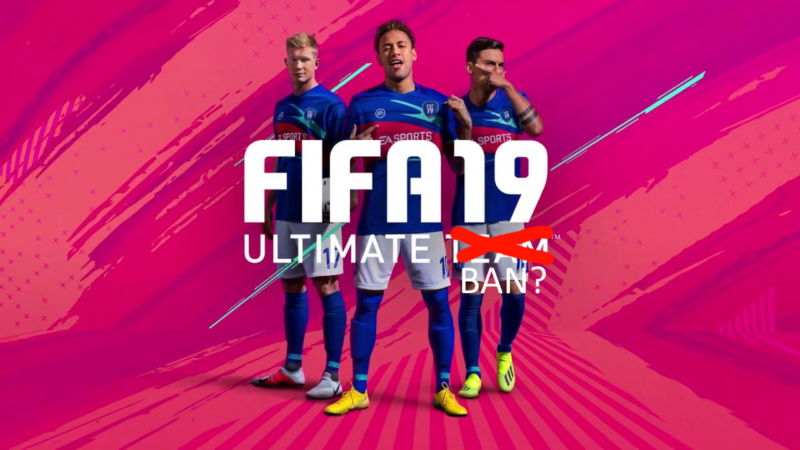
UK Parliament published a wide-ranging inquiry on Thursday looking into the rise of “immersive and addictive technologies” and what the British government should do to recognize manipulative, unsafe, and otherwise uncouth business practices in a rapidly changing industry. The report covers a lot: user tracking, cyberbullying, esports, social media, and on and on.
Tucked into this sweeping report is at least one wholly firm rebuke of a notorious games industry practice: the loot box. And as far as Parliament is concerned, loot boxes should be banned outright in any games targeted to minors.
“We recommend that loot boxes that contain the element of chance should not be sold to children playing games, and instead in-game credits should be earned through rewards won through playing the games,” the Parliament report reads. “In the absence of research which proves that no harm is being done by exposing children to gambling through the purchasing of loot boxes, then, we believe the precautionary principle should apply and they are not permitted in games played by children until the evidence proves otherwise.”
Not Kinder about it
This statement follows an awkward exchange between Parliament and an EA executive during a June hearing. At that time, EA Legal and Government Affairs VP Kerry Hopkins copped to the “surprise” factor attached to games’ loot boxes—which ask players to blindly pay for a wholly random in-game item, outfit, or reward. After comparing loot boxes to retail items like Kinder eggs (and never acknowledging that with those eggs, customers at least get a guarantee of some chocolate), Hopkins went on to call gaming’s loot boxes “quite ethical and fun [and] enjoyable to people.”
Thursday’s statement from Parliament recalls this specific description from Hopkins, then responds:
This [description] is noticeably out of step with the attitude of many of the gamers who contacted us following our evidence session, including those who vehemently rejected her characterisation of packs not as loot boxes but as “surprise mechanics.” One gamer called the company’s testimony to us “a bare face lie.” Another told us that the company has “heavily marketed and referred to their systems as ‘loot boxes’ for several years and… the mechanics of the system are exactly the same no matter what they choose to call it.”
Coincidentally, much of Parliament’s Thursday commentary on loot boxes revolves around EA, particularly the company’s top-selling FIFA series of video games. The commentary points out EA’s bullish admission that FIFA’s “Ultimate Team” mode, which revolves around wholly random drops of purchasable cards, accounts for hundreds of millions of dollars of digital sales revenue. After quoting EA sales figures, the report explains how the annualized game series routinely wipes players’ card collections when jumping from one year’s version to the next.
“One gamer told us that this cycle resulted in them spending ‘almost £800 to £1000 a year annually on FIFA,'” the report says. “Another gamer told us that because a pack’s contents ‘directly affects gameplay because some players are not as good as others,’ it incentivises people to keep buying packs in the hope of getting better players and, therefore, performing better in the game.”
The heart of this inquiry subsection can be found in a quote taken from a concerned UK citizen, which acknowledges, then obliterates, the gaming industry’s common “only cosmetic” defense of loot box elements: “Children are especially vulnerable because they lack the maturity to understand that these purchases are manipulative, and their parents may not understand that these purchases are entirely unnecessary.”
What’s to be done?
The inquiry takes a further scientific look at the psychology of game players enticed by loot boxes. After citing multiple studies, the inquiry concedes that a clear, causal link has yet to be established between loot boxes and problem gambling. Still, the current preponderance of evidence has at least convinced researchers that more transparency about loot boxes in games, and about their effective overlap with games of chance like slot machines, should be made apparent to game players and their parents—if not used as consideration to slap age restrictions on said games on par with gambling.
To buffer this argument about the gambling-like qualities of loot box acquisition, the study takes a lengthy dive into the black market of virtual item sales, particularly attached to Counter Strike: Global Offensive. “The volume, variety and sophistication of websites advertising opportunities to exchange in-game items for cash, indicates that to term such circumvention of regulation as ‘occasional’ understates the extent of this issue for certain games,” the report reads.
But gambling-like regulation of loot box practices is stymied by at least one current British law. “Purchasing loot boxes does not meet the regulatory definition of licensable gambling under the Gambling Act 2005 because the in-game items have no real-world monetary value outside the games,” the inquiry reads. (That’s one big reason the inquiry cites so much data about these in-game items having cash value in the black market.) The report thus suggests that “the Government should bring forward regulations under section 6 of the Gambling Act 2005 in the next parliamentary session to specify that loot boxes are a game of chance.” From there, either a rewriting of the law may begin, or regulators would at least be held to public scrutiny in explaining why they wouldn’t do so.
https://arstechnica.com/?p=1568087

